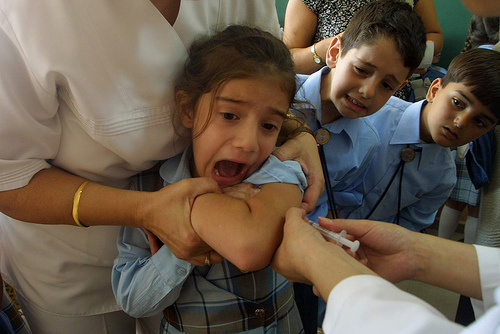
When you visit a hospital for a surgery or other process, you should expect to heal, not become even sicker than you were before. however, there are some bacteria that can live in hospitals, infesting your surgical incisions and other wounds and causing infections that may prove to be fatal. one such infection is tetanus.
The clostridium genus of bacteria has several members that can produce powerful neurotoxins. In fact, the bacteria that causes botulism is in this same clostridium genus as the bacterium that causes tetanus, Clostridium tetani. this bacteria produces a toxin called tetanospasmin, which interferes with the motor nerves’ ability to control muscle movements. thus, if you are infected with tetanus, you can suffer from uncontrollable muscle spasms that pull your muscles into tightly flexed positions.
This is one reason why tetanus infections are also called lockjaw. because the delicate facial muscles are often the first ones affected by the tetanospasmin toxin, you may be unable to open your mouth fully. this is also called trismus. besides having your jaw locked shut or barely open, you may also suffer from risus sardonicus, which is when your mouth is forced into an abnormal smile.
Besides frozen facial muscles, the other symptoms of tetanus include weakness, irritability, muscle cramps, soreness, and difficulty swallowing. Sometimes, the muscle contractions can be so strong that they cause broken bones. other times, the muscles of the respiratory system may be affected, resulting in the loss of breathing capability.
Normally, you would think that hospitals would be highly disinfected areas that are kept clean of germs. however, the spores produced by Clostridium tetani are very tough and highly resistant to fluctuations in temperature. thus, open wounds caused by surgical incisions as well as childbirth, abscesses, sites of needle injections, burns, and crush injuries are all susceptible to tetanus. if you come to the hospital to treat one of these wounds, or if you undergo surgery or childbirth in the hospital, you may be at risk for contracting tetanus in the medical facility.
Thankfully, once the hospital staff realizes that you have tetanus, you can receive antibiotics and antitoxins that can help you recover. In some cases, you may need a breathing machine to help you if your respiratory muscles are contracting uncontrollably. Additionally, you can receive vaccinations to help you prevent future tetanus attacks.
Surprisingly, hospitals are not always kept clean enough to prevent hospital-acquired infections such as tetanus and methicillin-resistant Staphylococcus aureus, or MRSA. if you or someone you know has suffered from a hospital infection due to hospital negligence, you should consult a medical malpractice attorney about your options. For more information, check out the medical malpractice lawyers from Habush Habush & Rottier, S.C., today.